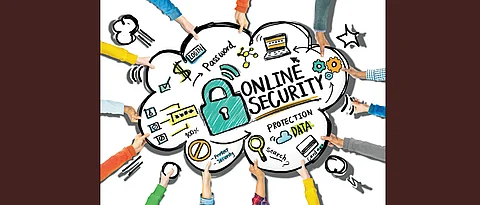

Thanks to social media, the world is just a click away. You can connect with anyone from anywhere. Having a digital existence online has become a necessity for people across age groups. But the easy ways of building friendships and expanding network can put your privacy and personal data at risk. In the backdrop of Facebook’s recent data breach, we talk to youngsters to know how we can brace up for the future.
Aniket Powar, a final year student, Sinhagad College of Engineering, Pune, says that the data breach is worrisome. “When all that we want to do is be online and share moments or data with our friends,” he says. So while creating an account and uploading personal data and other things on Facebook, it never crossed his mind that something like this was in store for the future. “Facebook has always been a means of connecting with others near and far alike and when we trust a site with all our data it is actually wrong on its part to not care about the safety of its users,” he adds. But he says that users are responsible for their own online presence and they should make sure they do not put up any personal information online.
Anup Doddamani, a student of Cyber Security, MIT Pune, says that for a long time now Facebook has given access to third party applications. “The fun games that we play and the quizzes that we take online redirects us to third party applications,” he says, adding that a window pops up which mentions that the said application will get access to your data. It is imperative for each and every person on Facebook to take some time out and read the terms and conditions of the social networking site. He iterates that it is also the user’s responsibility to be safe while surfing social networking sites and also the Internet for that matter.
“I created a business page on Facebook to build up a strong customer base,” says Aishwarya Satam, who runs her startup online. She adds that since it is a business page, details of bank accounts and phone numbers are always exchanged on the page and also through her personal profile. “Because of the data breach that affected accounts in America we do not know how safe we are in India because of which all our previously shared information is at risk,” she says. Satam says that now she makes sure that she only shares posts from trusted pages and applications online.
FOR ONLINE SAFETY
Manas Krishna, an ex-professor of Cyber Security, shares a few tips to help us stay safe online:
- Create complex passwords — Passwords are like toothbrushes. You don’t share them with anyone and you change them every 30 days. It is imperative to create strong passwords which cannot be broken using simple dictionary, but one which needs brute force attack. Complex passwords usually contain special characters, a mix of lower/ uppercase alphabets and, most importantly, must not be words that you can find in a dictionary.
- Be wary of the network you are using — Whilst using public networks, it is unsafe to log into anything. Be it your social media or your bank account, always prefer to do so in a network that you trust. Also, ensure that you always see the green padlock (https) on your browser which tells you that the site you’re visiting is actually encrypting your information.
- Be click smart — Do not click on obvious/ suspicious links. When a browser popup tells you that you’ve won $1,000,000, rest assured that you haven’t. When you visit malicious websites, they can infect your computer with rootkits and other types of viruses and provide access to information on your device without you knowing about it.
- Be wary of what you share online — Be very selective about information you share online. Be it updating information about your vacation or where you are eating out, there is a possibility that you might leave yourself or your belongings vulnerable. Plus, you can never entirely delete something from the Internet. Once you upload data digitally, there’s a very good chance that it will remain there forever.
- Learn about latest scams — Keep yourself updated with information about how you can be conned into giving away your financial information to people from the ‘IRS’ or even your bank. Be wary of attachments you receive in your e-mail and do not open them unless you receive them from a trusted source.
- Beef up network security at home or office — Wherever you use WiFi on a regular basis, make sure it is a trusted connection. Use a firewall and cover your webcams when not in use.
